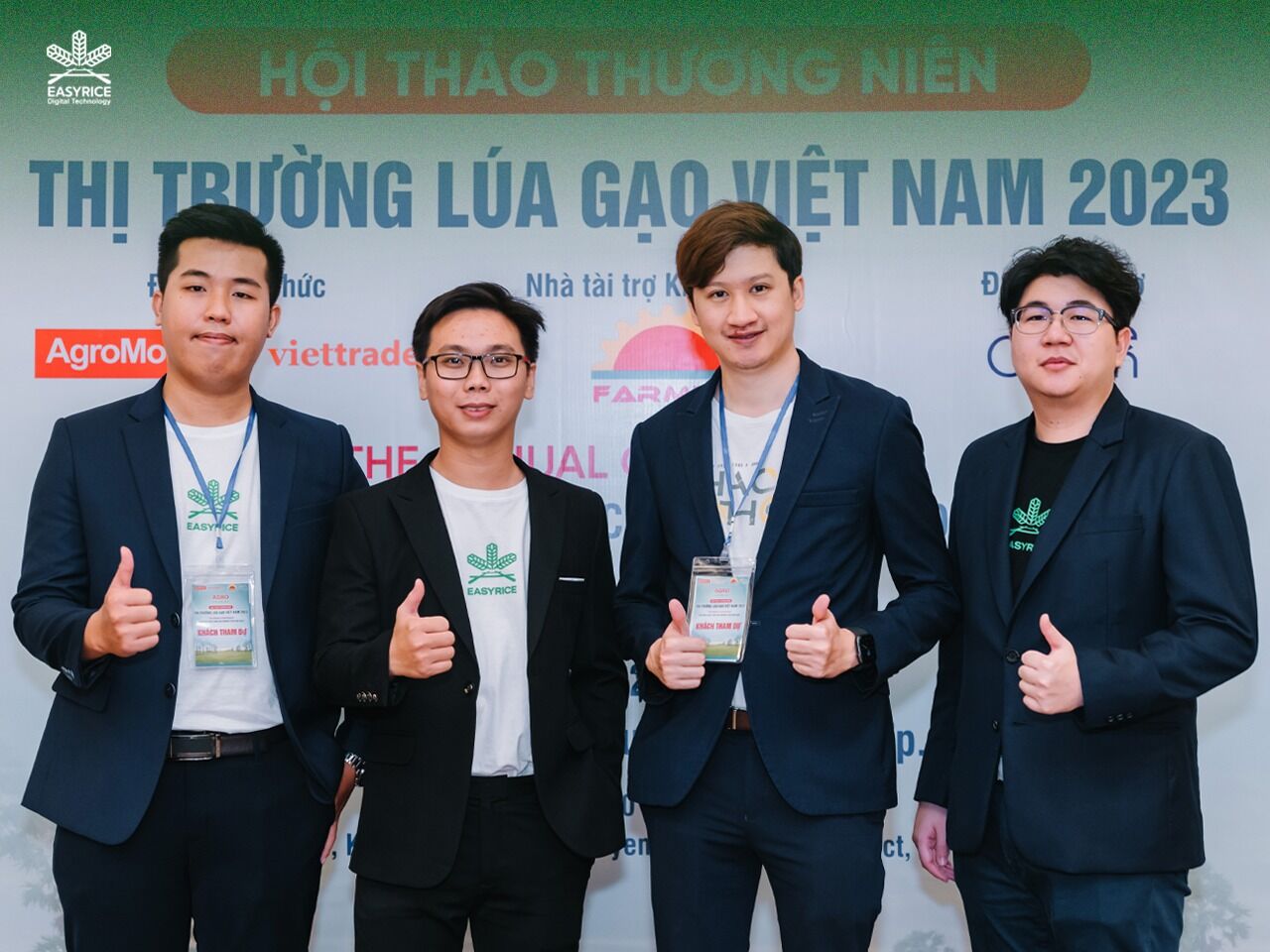Easyrice transforms Thai rice industry with AI-powered inspection solutions

Emerging from academic research projects, Easyrice Digital Technology Co Ltd has grown into a cutting-edge tech startup focusing on artificial intelligence (AI) within the agricultural sector, specifically tailored towards bettering the rice industry in Thailand.
Easyrice provides AI-powered solutions designed to simplify and enhance the systems of rice quality inspections and data management, offering faster, more precise processes. As a result, this innovative technology significantly reduces errors, time, and financial costs typically associated with traditional inspection procedures.
Established in 2019 by a team of tech researchers, Easyrice has been the recipient of numerous awards in 2022, including three accolades at the Asia-Pacific ICT Alliance Awards for industrial application, AI, and as first runner-up in the startup category.
Phuvin Kongsawat, the CEO and co-founder of Easyrice, explained that during his university research projects on rice, he found various problems significantly impeding the productivity of the rice supply chain. This included the adulteration of paddy varieties and costly inefficiencies in the standard rice quality inspection process.
Traditionally, inspections require human intervention, with experts examining every grain of rice, predominantly through visual inspection. This manual procedure can lead to inaccuracies and mistakes, causing potential drops in the quality benchmarks of Thai rice even leading to a dip in pricing. The domino effect of this could impact the livelihoods of rice farmers, reports Bangkok Post.
To address these challenges, Easyrice implemented AI technology to overhaul the inspection procedures with the aim of setting a new standard for rice inspections, the CEO explained
“The application of AI will boost inspection standards, increase precision, and foster a robust database that will play a key role in propelling the Thai agricultural sector forward in the foreseeable future.”
He added that three major obstacles hamper the efficiency of rice inspections: human inconsistencies and unreliability, insufficient sample sizes during chemical testing, and the expenses and time constraints associated with DNA testing.
Easyrice launched two distinctive services to tackle these hurdles, the first being an AI-powered solution for quality inspection. This technology drastically reduces the inspection time to an impressive 3-5 minutes per 25g of rice, in comparison to the 15-20 minutes necessitated by the conventional approach.
The introduction of this tech-forward solution also reduces both cost and time by approximately 30%, covering all 25 Thai rice standards. Importers and exporters will find this particularly valuable, noted Phuvin.
The second service launched by Easyrice is an AI tool designed for the inspection of paddy varieties. Aimed at farmers and cooperatives who supply rice to millers, this service boasts a comprehensive seeds database comprising up to 84 varieties.
“The two services we offer follow a pay-per-use model, ensuring maximum accessibility.”
Guaranteeing an impressive 95% accuracy, Easyrice’s AI inspection process is ten times faster than traditional methods and helps save over 160 million baht in annual rejection costs.
In just a year, their services have managed to capture a 30% market share of Thai rice exports, inspecting the quality of more than six million tonnes of paddy varieties and rice. Phuvin also highlighted that, as manual rice inspection is a repetitive task, fewer young people show interest in fieldwork.
However, with AI tools to assist in inspection processes, humans can achieve higher efficiency, accuracy, quicker inspection times, and significant cost savings. The emphasis for Easyrice in the future is the digitisation of the rice industry.
“AI will not replace the rice inspectors as they certify the inspection. Instead, it helps them work faster, overcoming the shortage of inspectors. AI will enable seamless digitisation in the rice industry. Our aspiration is for our AI to play a pivotal role in safeguarding the value and profitability of jasmine rice by ensuring its unparalleled quality and distinctive identity.”
Easyrice plans to extend its AI solutions to cover other foods, such as barley, oats, and coffee in the future as well.
Latest Thailand News
Follow The Thaiger on Google News:


























